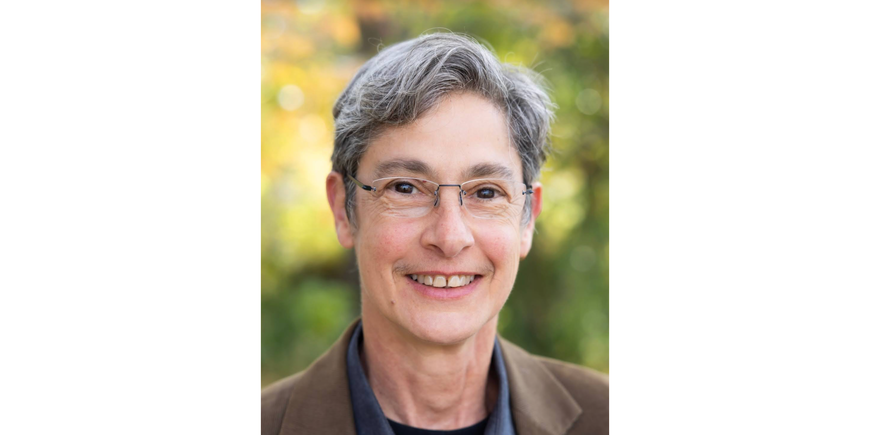Q&A with Dr. Miranda Joseph, American Studies Chair
Miranda Joseph, Professor of Gender, Women & Sexuality Studies, has joined American Studies to serve in the role of Chair. Joseph is the author of Debt to Society: Accounting for Life under Capitalism (2014), Against the Romance of Community (2002), and numerous articles and book chapters about the relationship between culture and capitalism. Her recent works contribute to critical university studies and feminist studies of finance. Joseph teaches feminist, Marxist, poststructuralist, and queer theory, cultural studies methods, and LGBT Studies.
Why were you interested in becoming Chair of American Studies?
I am very excited to develop my relationship with the Department of American Studies and support the work of its fantastic students and faculty. I have a long and deep relationship with the field: it is one of my primary intellectual homes. I participate in the American Studies Association conferences every year and have served on the ASA National Council. American Studies here and nationally has been a tremendously important space for scholarship in the interest of social justice: critical race & ethnic studies, feminist studies, queer studies, prison abolition scholarship, critical disability studies, and for cultural studies, an approach that engages the relationship between culture (meaning both whole ways of life and artistic productions) and economic processes–especially the exploitation and inequality integral to capitalism.
Okay, but why did you want to be a department Chair?
I have undertaken numerous faculty leadership and administrative positions in an effort to enable and encourage the university to fulfill its potential to foster knowledge creation and dissemination in the interest of social justice and provide transformative education to the diverse students and broader publics that it is responsible to serve. Here at the University of Minnesota, I served as Chair of Gender, Women & Sexuality Studies (2017-2020). As an enthusiastic junior faculty member at the University of Arizona, I devoted a great deal of time and energy to creating what is now the LGBTQ+ Institute. As part of that work, we developed the Sex, Race, and Globalization Project, which was an institutional space to support the development of cutting-edge scholarship in transnational sexuality studies. Also, while I was in Arizona, I had the opportunity to serve on and lead the university-wide Strategic Planning and Budget Advisory Committee, which gave me the opportunity to get my hands dirty in the metrics, monies, and politics that shape contemporary universities. More formally, you could say I did “participant observation” and, in fact, I did produce a scholarly reflection on that experience that is included as the chapter “Accounting for Interdisciplinarity” in my second book, Debt to Society. I continue to be interested in understanding the relation of universities to political-economic processes; I’m currently participating in a collaborative research project about the UMN faculty neighborhood called University Grove, that raises questions about race, racism, and real estate and the class position of faculty, among many other issues. This project opens up other opportunities to connect with American Studies faculty who are working in critical university studies and doing publicly-engaged work about how the University of Minnesota has been shaped by and produced structural inequalities.
What are you looking forward to this year?
I am very excited that the American Studies Department has the opportunity to search for a President’s Postdoctoral Fellow and thus recruit another cutting edge scholar to join our department. I’m also looking forward to working with our graduate students, both ongoing students and the new cohort that has just started this year. And I’m very happy for the daily collaboration with our tremendous Scott Hall Hub staff as well as faculty colleagues in the department who make the work pleasurable and constructive.
What have you been reading lately?
I had the privilege of being on sabbatical last year; I spent the year in Mexico City with my spouse, Erin Durban, who is faculty here at UMN in anthropology and critical disability studies, and our kid, Fen (now 11 years old). In addition to checking out the amazing array of museums there, walking different neighborhoods and eating fantastic food, I had the opportunity to read widely, including quite a bit of fiction as well as scholarly works. Among recent favorites: The Seven Moons of Maali Almeida by Shehan Karunatilaka; The Sentence by Louise Erdrich; In the Company of Radical Women Writers by Rosemary Hennessy; Wayward Lives, Beautiful Experiments: Intimate Histories of Riotous Black Girls, Troublesome Women, and Queer Radicals by Saidiya Hartman.

